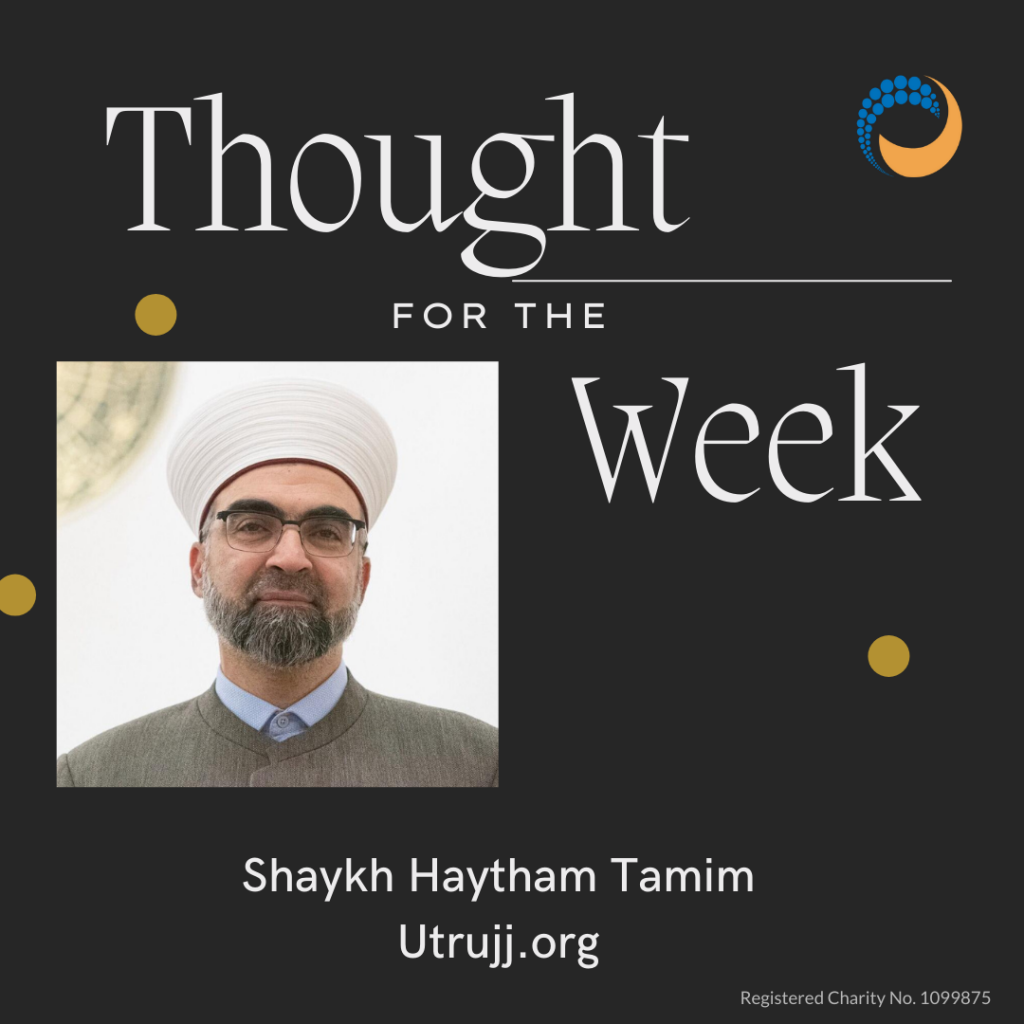The Hour of Acceptance on Jumu’ah

ساعة الإجابة يوم الجمعة
Sa’atul Ijabah – The Hour of Response
Friday is a special day for the ummah. Allah Almighty put barakah in it for our ummah.
Abu Hurairah (may Allah be pleased with him) narrated that the Messenger of Allah (peace be on him) said:
The best day on which the sun has risen is Friday. (Abu Dawoud)
The day of Jumu’ah is full or merits and rewards for those who capitalise on it
This is a long hadith and because Friday has so many virtues, the Prophet (peace be on him) encouraged us to do extra on this special day, because he had been given glimpses of the Unseen and so he had knowledge which we do not have access to. He shared this special knowledge with us and so exhorted us to do good deeds and supplicate, and pray and recite Quran and do dhikr. Invest in this special time.
Duas are accepted
Abu Hurairah (may Allah be pleased with him) reported that Allah’s Messenger said:
“There is a time on Friday at which no Muslim will ask Allah for what is good, but will be granted to him.” (Bukhari and Muslim)
عَنْ أَبِي هُرَيْرَةَ رَضِيَ اللَّهُ تعالى عَنْهُ قَالَ: قَالَ رَسُولُ اللَّهِ صَلَّى اللَّهُ عَلَيْهِ وَسَلَّمَ: ” إِنَّ فِي الْجُمُعَةِ لَسَاعَةً لَا يُوَافِقُهَا عَبْدٌ مُسْلِمٌ يَسْأَلُ اللَّهَ فِيهَا خَيْرًا إِلَّا أعطَاهُ إِيَّاه. متفق عليه.
Here we can see that if you ask for something which is good related to dunya or akhirah, which is in line with the Shariah during the Special Hour it will be granted. (Not anything like cutting ties or anything disliked). This is confirmed by another hadith.
The time is short
عن أبي هريرة رضي الله تعالى عنه أن رسول الله صلى الله عليه وسلم ، ذكر يوم الجمعة، فقال: “فيها ساعة لا يوافقها عبد مسلم، وهو قائم يصلي يسأل الله شيئًا، إلا أعطاه إياه” وأشار بيده يقللها. (متفق عليه) .
Abu Hurairah (may Allah be pleased with him) reported that the Messenger of Allah (peace be on him) said while talking about the merits of Friday:
“There is a time on Friday at which a Muslim, while he (or she) is performing Salat and is supplicating, will be granted whatever he (or she) is supplicating for.” And he pointed with his hand to indicate that this period of time is very short. (Bukhari and Muslim)
He pointed with his finger tip to his middle or pinkie finger to show that it was a short time.
And by the way the word ‘hour’ is not literally 60 minutes.
How do we divide time into 12?
In Imam Tha’alibi’s (d.1035) Fiqh al Lughah *, the linguistic dictionary which is a seminal work in Islamic literature, he told us that the Arabs divided the day in to 12 parts and the night into 12 and each hour has its own name. Linguistically the day starts at sunrise, but in Shariah, the day starts at Fajr not sunrise. If you divide that period from Fajr to Maghrib into 12 sections, regardless if the time is short or long (summer or winter), so it might be one hour or two hours.
In Ibn Hajar al Asqalani’s book, Fathul Bari, his commentary on Sahih Al Bukhari, he mentions 41 opinions with evidences, on when this Special Hour is when Allah accepts the duas without rejecting them.
Seek it in the Last Hour
حديث جابر بن عبد الله رضي الله عنهما، عن رسول الله صلى الله عليه وسلم أنه قال: (يوم الجمعة ثنتا عشرة – يريد: ساعة – لا يوجد مسلم يسأل الله عز وجل شيئا إلا أتاه الله عز وجل فالتمسوها آخر ساعة بعد العصر) . رواه أبو داود (1048) والنسائي (1389)
In another hadith, Jabir ibn Abdullah (may Allah be pleased with him) narrated that the Prophet (peace be on him) said:
Friday is divided into twelve hours. Amongst them there is an hour in which a Muslim does not ask Allah for anything but He gives it to him. So seek it in the last hour after the afternoon prayer. (Abu Dawoud)
Some scholars said this time is during Salatul Jum’uah. However Abu Dawood’s narration is the summary of the opinions of the majority of scholars, that the time is between asr and maghrib, so do your best to seek this special time. Pray for goodness for yourself, your family, the pandemic to be lifted, for the ill to be cured and for blessed provisions.
Do you have to remain making dua during the entire period between asr and maghrib? Not necessarily, but if you do so, it would be extra reward and you would catch those blessed moments.
Abu Hurairah narrated:
“Allah’s Messenger said: The best day that the sun has risen upon is Friday. On it Adam was created, on it he entered Paradise, and on it, he was sent down from it. And in it there is an hour in which the Muslim worshipper would not stand in Salat, asking Allah for anything except that He would give it to him.'” Abu Hurairah said: “I met Abdullah bin Salam, and I mentioned this Hadith to him. He said: ‘I am more knowledgeable about that hour.’ So I said: ‘Inform me about it, and do not keep any of it from me.’ He said: ‘It is after al-Asr until the sun has set.’ I said: ‘How can it be after Al-Asr when Allah’s Messenger said: ‘ the Muslim worshipper would not stand in Salat.’ And that is a time that prayer is not performed in?” So Abdullah bin Salam said: ‘Didn’t Allah’s Messenger say: “Whoever sat in a gathering awaiting the Salat then he is in Salat”? I said: ‘Of course.’ He said: ‘Then that is it.'” (Tirmidhi)
عَنْ أَبِي هُرَيْرَةَ قَالَ : قَالَ رَسُولُ اللَّهِ صَلَّى اللَّهُ عَلَيْهِ وَسَلَّمَ : ” خَيْرُ يَوْمٍ طَلَعَتْ فِيهِ الشَّمْسُ يَوْمُ الْجُمُعَةِ ؛ فِيهِ خُلِقَ آدَمُ وَفِيهِ أُدْخِلَ الْجَنَّةَ، وَفِيهِ أُهْبِطَ مِنْهَا، وَفِيهِ سَاعَةٌ لَا يُوَافِقُهَا عَبْدٌ مُسْلِمٌ يُصَلِّي فَيَسْأَلُ اللَّهَ فِيهَا شَيْئًا إِلَّا أَعْطَاهُ إِيَّاهُ “. قَالَ أَبُو هُرَيْرَةَ : فَلَقِيتُ عَبْدَ اللَّهِ بْنَ سَلَامٍ فَذَكَرْتُ لَهُ هَذَا الْحَدِيثَ، فَقَالَ : أَنَا أَعْلَمُ بِتِلْكَ السَّاعَةِ. فَقُلْتُ : أَخْبِرْنِي بِهَا وَلَا تَضْنَنْ بِهَا عَلَيَّ. قَالَ : هِيَ بَعْدَ الْعَصْرِ إِلَى أَنْ تَغْرُبَ الشَّمْسُ. فَقُلْتُ : كَيْفَ تَكُونُ بَعْدَ الْعَصْرِ وَقَدْ قَالَ رَسُولُ اللَّهِ صَلَّى اللَّهُ عَلَيْهِ وَسَلَّمَ : ” لَا يُوَافِقُهَا عَبْدٌ مُسْلِمٌ وَهُوَ يُصَلِّي “. وَتِلْكَ السَّاعَةُ لَا يُصَلَّى فِيهَا ؟ فَقَالَ عَبْدُ اللَّهِ بْنُ سَلَامٍ : أَلَيْسَ قَدْ قَالَ رَسُولُ اللَّهِ صَلَّى اللَّهُ عَلَيْهِ وَسَلَّمَ : ” مَنْ جَلَسَ مَجْلِسًا يَنْتَظِرُ الصَّلَاةَ فَهُوَ فِي صَلَاةٍ ” ؟ قُلْتُ : بَلَى. قَالَ : فَهُوَ ذَاكَ. وَفِي الْحَدِيثِ قِصَّةٌ طَوِيلَةٌ، وَهَذَا حَدِيثٌ صَحِيحٌ. وَمَعْنَى قَوْلِهِ أَخْبِرْنِي بِهَا وَلَا تَضْنَنْ بِهَا عَلَيَّ : لَا تَبْخَلْ بِهَا عَلَيَّ، وَالضَّنُّ : الْبُخْلُ وَالظَّنِينُ : الْمُتَّهَمُ.رواه الترمذي. حكم الحديث: صحيح
The last third of the night
Every night there is a special time as well, which is not limited to Fridays and longer than 1 hour, and these times are encouragement from the Prophet (peace be on him) to do extra dua and have hope in Allah that He will support us and bless us, forgive us and protect us.
Jabir said he heard the Prophet say:
“There is an hour during the night at which no Muslim man will ask God for good in this world and the next without His giving it to him; and that applies to every night.” (Muslim)
We ask Allah to keep us connected to Him every day and at all times and to ask Him for good for ourselves, our parents, family, friends, neighbours, colleagues, ummah and country. We ask to make us better and among those whose supplications He accepts. Ameen.
*
1) فقه اللغة وسر العربية (1 / 215):
الفصل السابع عشر “في تَعْدِيدِ سَاعَاتِ النَّهارِ واللَّيل على أربع وعشرين لفظة”.
عن حمزة بن الحسن وعليه عهدتها:
سَاعَاتُ النَّهارِ: الشُرُوقُ. ثُمَّ البكورُ. ثُمَّ الغُدْوَةُ. ثُمَّ الضُّحَى. ثُمَّ الهاجِرَةُ. ثُمَّ الظَهِيرَةُ. ثُمَّ الرَّوَاحُ. ثُمَّ العَصْرُ. ثُمَّ القَصْرُ. ثُمَّ الأصِيلُ. ثُمَّ العَشِيُّ. ثُمَّ الغُروبُ.
سَاعَاتُ اللَّيلِ: الشَّفَقُ. ثُمَّ الغَسَقُ. ثُمَّ العَتَمَةُ. ثُمَّ السُّدْفَة. ثُمَّ الفَحْمَةُ. ثُمَّ الزُّلَّةُ. ثُمَّ الزُّلْفةُ. ثُمَّ البُهْرَةُ. ثُمَّ السَّحَرُ. ثُمَّ الفَجْرُ. ثُمَّ الصُّبْحُ. ثُمَّ الصَّباحُ.
“وبَاقي أسْماءِ الأوْقَاتِ تَجِيءُ بِتَكْرِيرِ الألفاظ التّي معانيها متّفقة”.
Thought for the Week – Shaykh Haytham Tamim 29th January 2021

Related post
Is it Ok to wish people Jumu’ah Mubarak?
Jazakumullahu khayran for spending time learning with us. We need your support to enable us to reach more people and spread authentic knowledge. Every contribution big or small is valuable to our future.
‘If anyone calls others to follow right guidance, his reward will be equivalent to those who follow him (in righteousness) without their reward being diminished in any respect.’ (Muslim)
Help us promote a better understanding of Islam’s beautiful message of balance, moderation and tolerance.
Your support will help us make sacred knowledge accessible and empower people to improve themselves and their lives.
- The truth is more powerful than lies
- Does a bride’s wali have to be Muslim?
- Is is permissible to lead a salah split over different rooms?
- Global IT outage. When systems go down…
- The concept of worship. What are ibadah and ihsan – and how do they lead to self development?
Recommended Posts

The truth is more powerful than lies
July 26, 2024

Global IT outage. When systems go down…
July 19, 2024

